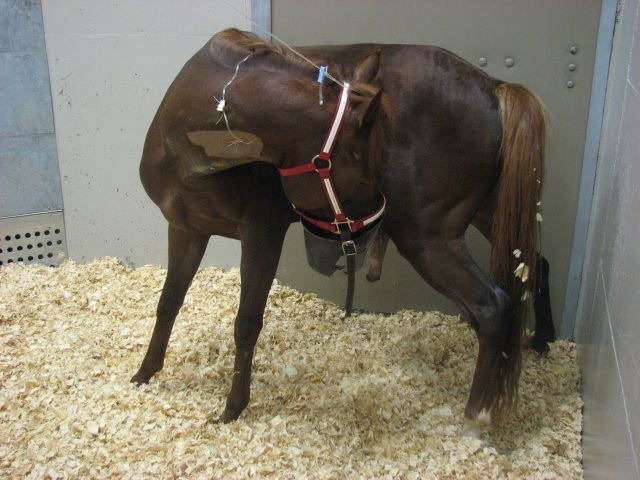Posted: 5th November 2018 | Back to news feed

The onset of Autumn relieves most of us of some problems but brings others. Flies are getting significantly less of a problem in most areas - a relief for anyone with a horse or pony affected by Sweet Itch. Lush grass growth is down - a blessing for those with animals prone to obesity or laminitis. And outside air quality is usually better in Autumn as grass pollen, tree pollen, fungal spore counts and pollution are lower.
But Autumn often brings an increased risk of colic and respiratory problems and the two are actually often related. Changes in training and competing, daylight available and paddock conditions often mean changes in management. This can mean less time in the paddock, more time stabled and less visits to the yard and changes in feed with more preserved forage being fed.

The first risk from all these changes as most owners will know is an increased risk of colic. The second biggest risk is a worsening of respiratory disease, particularly in horses with equine asthma (RAO, COPD, Broken Wind).
What steps can you take to reduce the risk of problems this Autumn?
Try to make any changes to diet and management over several weeks. Gradually reduce training, gradually reduce hard feed, gradually introduce hay/haylage, gradually reduce/increase turnout time. You can also support your horses GI tract in this transition with a high dose protected yeast probiotic.
With respiratory health, bedding and preserved forage are the main sources of allergens/irritants. Soaking or steaming hay (which preserves nutritional quality) or feeding haylage are very effective. At the same time, don't ignore an occasional cough or slight nasal discharge. Even very mild symptoms in horses can be a clue to moderate to severe respiratory disease. Vitamin C in the lungs is part of the major defence against respiratory disease is often depleted in horses with respiratory symptoms. Research shows that supplementing the horse's diet with anti-oxidants, especially Vitamin C, aids the respiratory system and provides valuable support. The form of Vitamin C that should be fed to horses is ascorbyl monophosphate as opposed to l-ascorbic acid. Ascorbic acid is commonly used in supplements but very poorly absorbed by horses.
Further information and articles on this subject are available on Dr David Marlins website wich you can visit here: http://davidmarlin.co.uk/
The Equestrian Index newsfeed is compiled from articles submitted by advertising members and expresses the opinions of those members. Watsons Directories Ltd shall not be held liable for any inaccuracies or mis-statements therein.